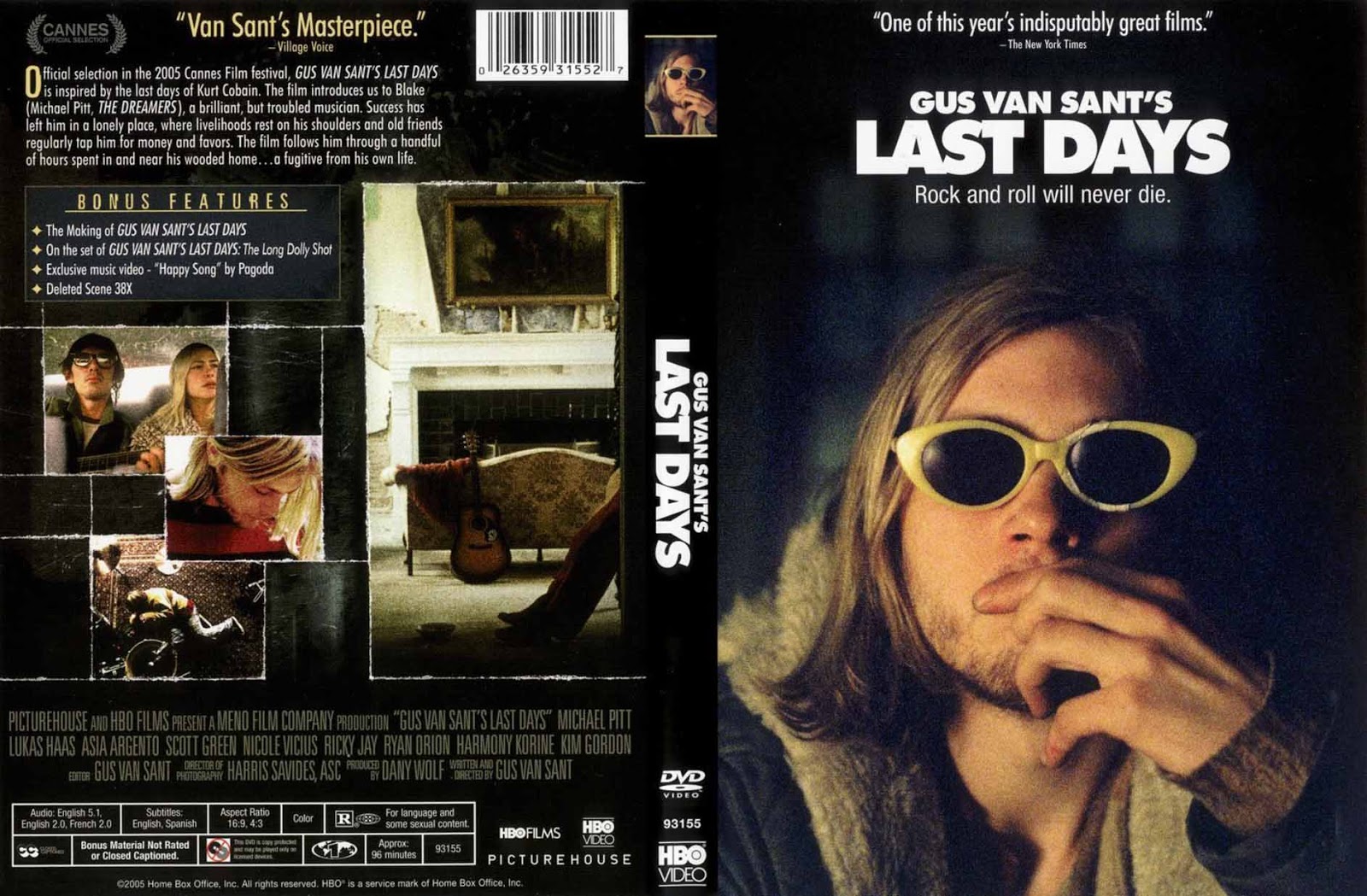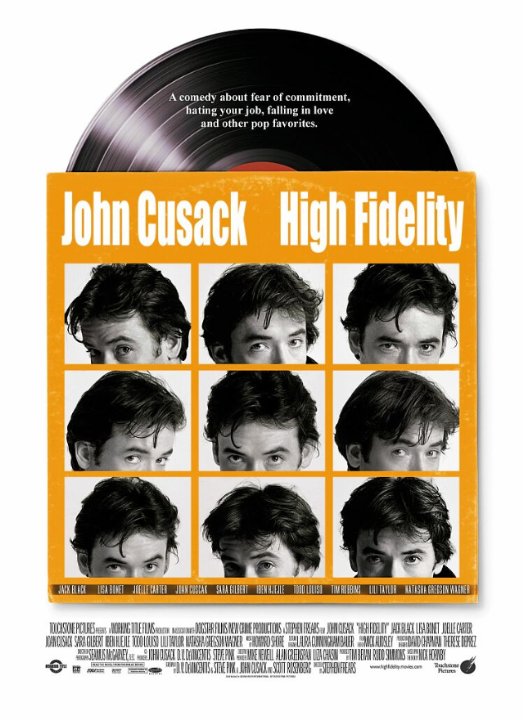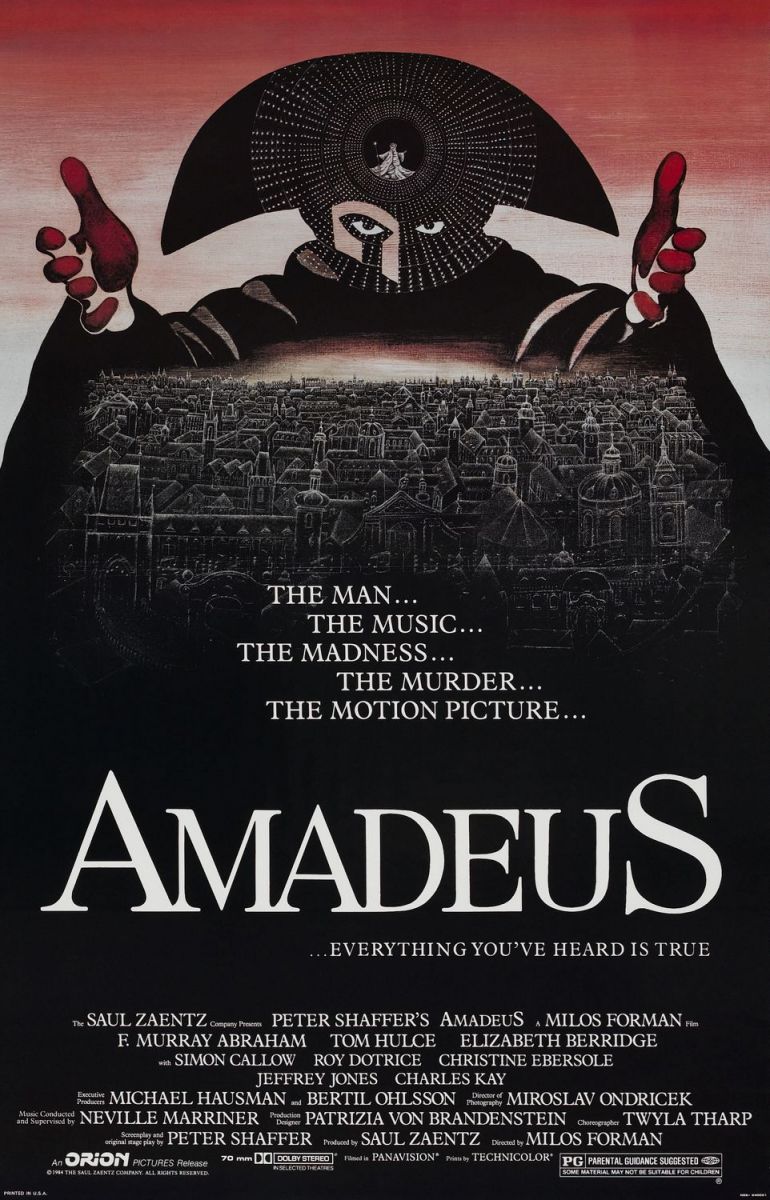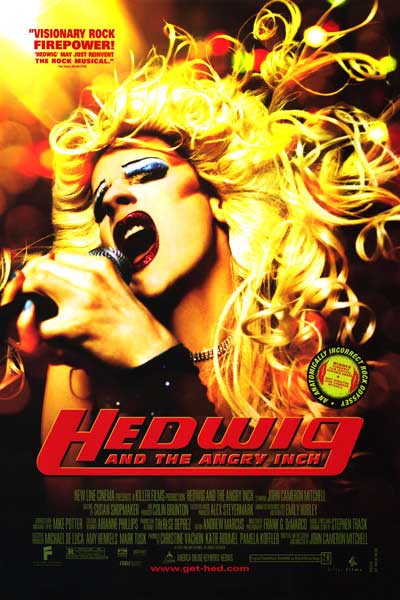In between critiquing (and trashing) all sorts of music, we also find time to watch a few films here and there. Below are reviews of five films about music that we managed to watch.
LAST DAYS (2005) - 8
Directed by Gus van Sant

Oh, Gus van Sant, how you appeal to our insecure pretentions and make us feel all fancy and elegant. Slow as can be, Last Days is an artsy, fictional interpretation of, well, the last days of Kurt Cobain before he blew his head off. It follows Blake, the protagonist, as he undertakes an anomalous journey submerged in melancholy and despair. So Blake cooks himself some instant noodles before belting out an acoustic ballad on the guitar. Eventually though (SPOILER ALERT), he kills himself.
The film follows a minimalist narrative, with almost no spoken dialogue, and the resulting slow pace captures, in a very understated manner, the despondency and loneliness of Blake, an acclaimed musician, as he struggles with inner demons that are never quite revealed to us. Michael Pitt puts in an exceptional shift as the tortured rockstar, even writing and performing a couple of the songs, which happen to be very stripped down Seattle-in-the-90s-esque sounding, in this must-watch movie.
HIGH FIDELITY (2000) - 6
Directed by Stephen Frears

OK, so it’s a borderline chick-flick for men, but we watch all kinds of shit (especially chick-flicks) to broaden our horizons. Plus there’s lots of fourth wall-breaking, which makes the film hip, you see. High Fidelity, based on Nick Hornby’s novel by the same name, is the story of Rob, a dysfunctional 30-something perpetually stuck in adolescence, as he relives his past relationship failures and comes to terms with his own distorted perception of himself and all around him. So far, no music. Well, Rob owns a small records store, and he has a proclivity toward creating top five lists of records for different moods and reasons. In fact, the film is littered with references to, and conversations about, cult (and not so much) rock acts, and the protagonist and the two buffoons working for him happen to be pop culture elitists with an affinity towards laughable condescension at inferior music tastes.
Also, it features that odious little singing twunt, Jack Black. Any film with him in it is a de facto rock film (usually a shitty one, but this one’s not so bad, and even he’s not all that annoying for once).
MEETING PEOPLE IS EASY (1998) - 8
Directed by Grant Gee
.png)
There’s this glorious myth that the people (or blokes, since they’re British) in Radiohead are a bunch of miserable sods, a notion that the band refutes not infrequently. Meeting People Is Easy though, serves only to further perpetuate the belief. This 1998 ‘rockumentary’ documents the disastrous breakdown in communication the band suffered from during their world tour supporting 1996’s phenomenally successful rock masterpiece, O.K. Computer. It reinstates everyone’s suspicion that Thom Yorke is the grumpiest Brit around, but also brings to the fore an underlying disillusionment with the music ‘business’ that the band went through, and their problems with fame following the unprecedented reception to O.K. Computer. There’s plenty to watch out for, for fans especially, as the band is captured rehearsing or indulging in backstage chatter, or performing at giant venues, and one can voyeuristically travel with Radiohead, even as their own collective gloom envelopes the atmosphere of Meeting People Is Easy.
The film showcases a bleak portrayal of the band – maybe even bleaker than they actually are – but the period it documents may just be the prologue to a phase in the band’s career that (arguably) redefined mainstream music henceforth. The despair that haunted them post-O.K. Computer has often been attributed as the catalyst for the mad-scientist experimentation that ensued at the turn of the millennium; they threw the form book out of the window, going on to create several works of sprawling genius, the first of which, Kid A, was spawned as a direct consequence of the band’s state of mind at the time.
(A word of advice though – you may just feel dirty as you glance through the window into the band’s personal business during a testing time.)
AMADEUS (1984) - 9
Directed by Milos Forman

In tune with generational inadequacies, our ADHD usually forbids us from watching films that are over two-and-a-half hours long. But we stayed hooked to Amadeus, a very fictionalized account of Mozart and his supposed arch-enemy, Antonio Salieri, despite its daunting length. Mozart is portrayed as the first real rock star of music, pissing off nobility and noted musicians at whim, sleeping around, getting wasted, and generally indulging in all kinds of debauchery. And writing unnaturally beautiful music, of course. A golden genius, basically.
Amadeus focuses on Salieri’s obsession with Mozart’s wizardry, and his debilitating, one-way rivalry with him, which eventually destroys them both: One through ill-health, and the other through hubris that follows him around as a result of his crippling jealousy. Outstanding performances by the two chief players drive this charismatic extravaganza forward consistently, and the emotional depth and pathos exhibited by F Murray Abraham as Salieri is one of those extraordinary once-in-a-lifetime performances. In fact, if we were less bulging-muscles-alpha-male-macho-men, we may have shed a tear or two.
N.B. Salieri’s envy towards Mozart in the film is pure fabrication, adapted from the play with the same name, and the movie is a fictionalized account of their relationship; a fact that’s commonly ignored during nerdy bar-speak about classical musicians.
HEDWIG AND THE ANGRY INCH (2001) - 5
Directed by John Cameron Mitchell

This one’s a musical that follows the tragic (at times melodramatic) story of a transsexual singer in a band trying to make it. Her name’s Hedwig (Head-Wig, get it? She wears glamorous wigs, in case you still didn’t) and she’s trying to come to terms with the growing success of her one-time sort-of lover/sort-of-protégé, Tommy Gnosis, who’s basically stolen all the songs she wrote and become a mainstream pop icon. She, on the other hand, has to make do with ranting about her emotional troubles in dive bars with an able backing band (the Angry Inch) supporting her.
The movie grapples with meaningful and sensitive gender issues, as Hedwig, formerly Hansen, tries to deal with her heartbreaking past spent in Berlin (in East Germany at the time), as the then boy struggled with his own so-called peculiarities and the inevitable identity crisis such a dilemma causes. The film follows a narrative that takes a while to settle in, as the director uses constant flashbacks and passages of magic realism to get across Hedwig’s torment. It has just a little too much outlandish (and distinctly unsubtle) oomph at times for our taste, but it’s a good one-time watch, and the performances by the two leads (Hedwig and Tommy) kept us gripped for the most part.
This article initially appeared in the May-June 2012 edition of Rock Street Journal.
Stay tuned for part II

Leave a comment